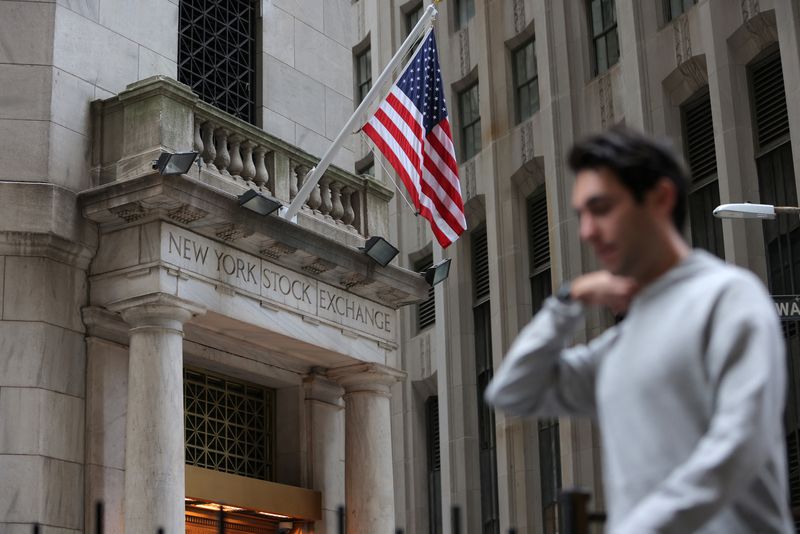Investing.com -- JPMorgan (NYSE:JPM) views a “Red Sweep” scenario in the US election as the most positive outcome for US stocks heading into the year-end, the Wall Street giant said in a recent note.
According to the firm, this result would likely drive a “broadening equity leadership” and a shift in market dynamics due to anticipated pro-growth policies, including deregulation and tax cuts.
“A Red Sweep scenario, which we view as the most positive for risk into year-end on prospects of pro-growth policies and deregulation across industries, as the upside potential is priced in first, while the uncertainty around policy execution would become more prominent in 2025,” strategists led by Dubravko Lakos-Bujas said in a note.
They believe that a Republican victory would alleviate market uncertainty, allowing capital flow to resume as volatility subsides, and emphasizing that a Red Sweep might encourage a rotation into domestic sectors.
This would allow investors to refocus on the Federal Reserve’s policy-easing efforts at a time when the economy and corporate earnings remain robust.
Still, the timing may be complex for investors, as JPMorgan cautions against possible turbulence in the bond and foreign exchange markets, which could react more sensitively than in previous years.
The bank's rates team expects that in a Republican win, Treasury yields may rise, with the 10-year yield forecast to increase by 30-40 basis points, while the US dollar could gain about 7%.
On the other hand, the firm cautions that such a scenario may trigger a temporary yet “violent rotation in leadership,” potentially affecting momentum stocks.
Strategists highlight that the level of “crowding in the Momentum factor” has hit the 99th percentile recently, suggesting a significant risk of sharp sectoral shifts, especially if high-momentum stocks experience a downturn.
Meanwhile, a divided government outcome would likely be neutral to slightly positive for US equities, JPMorgan notes.
But in the case of a Democratic sweep, the bank expects this would weigh on market sentiment, stressing that “a Blue Sweep scenario would likely be negative for the market,” though the firm views this outcome as a low-probability scenario.
“Amidst a positive setup for equities into year-end, one of our key worries remains a sharper move higher in the back-end of the rates curve with a risk that the Fed may be cornered,” Lakos-Bujas and his team added.
US equity markets are reaching record highs this election year, with the S&P 500 registering a recent 3-month return of 12.5%, marking the strongest in nearly a century, and a year-to-date return of 22%, the third-highest since 1936.
While elections significantly influence policy areas like the economy and healthcare, history shows markets generally perform positively during presidential terms, with few exceptions such as the Bush and Nixon eras.
